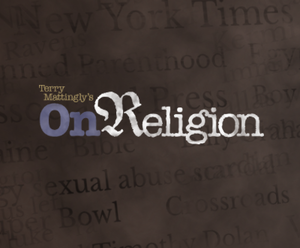Two decades ago, I attended Nimbus 2003, the first global Harry Potter studies convention.
This colorful event, at a Disney hotel in Orlando, drew a capacity crowd of about 600 participants — about 90% of which were female — from the United States, England and Australia.
What kinds of people showed up and what does this flashback have to do with this week’s “Crossroads” podcast (CLICK HERE to tune that in)? Hold that thought. Here’s a bite of the “On Religion” column that I wrote about that event, one of many Harry Potter-related columns I have written over the years.
In hotel hallways, witch wannabes raised their expensive, professionally carved wands and fought imaginary duels with tickling spells and other incantations. In the lecture halls, others heard papers on everything from Harry Potter and the First Amendment to "Greenhouses are for Girls, Beasts are for Boys? Gender Characterizations in Harry Potter." …
Organizers also dedicated an entire track of lectures and panels to spiritual issues, addressing topics such as "Seven Deadly Sins, Seven Heavenly Virtues: Moral Development in Harry Potter" and "Can Any Wisdom Come From Wizardry?"
I was not surprised that a large number of the participants mentioned, in registration, that they were Wiccans or interested in other forms of neo-paganism. However, it was clear that at least half of the crowd of readers with marked-up Harry Potter books were mothers — often homeschool enthusiasts — who were Catholics, evangelical Protestants or members of the Church of Jesus Christ of Latter-day Saints.
It was important, some said, that author J.K. Rowling had outed herself, early on, as a communicant in the progressive Scottish Episcopal Church. She told a Canadian newspaper: "Every time I've been asked if I believe in God, I've said, 'yes,' because I do. … If I talk too freely about that, I think the intelligent reader — whether 10 or 60 — will be able to guess what is coming in the books."
Now, this brings us to that fascinating New York Times feature that ran with this double-decker headline:
An Unexpected Hotbed of Y.A. Authors: Utah
A tight-knit community of young-adult writers who belong to the Church of Jesus Christ of Latter-day Saints has yielded smashes like “Twilight.” But religious doctrine can clash with creative freedoms
Yes, it’s interesting that Mormons play a major role in the world of fantasy fiction for children, teenagers and family-reading circles. I also thought it was interesting that editors at the world’s most prestigious newspaper have never heard of some other religious believers who have excelled as fantasy stars.
Can you say “Narnia”? How about “The Hobbit”? How about “A Wrinkle in Time”?






